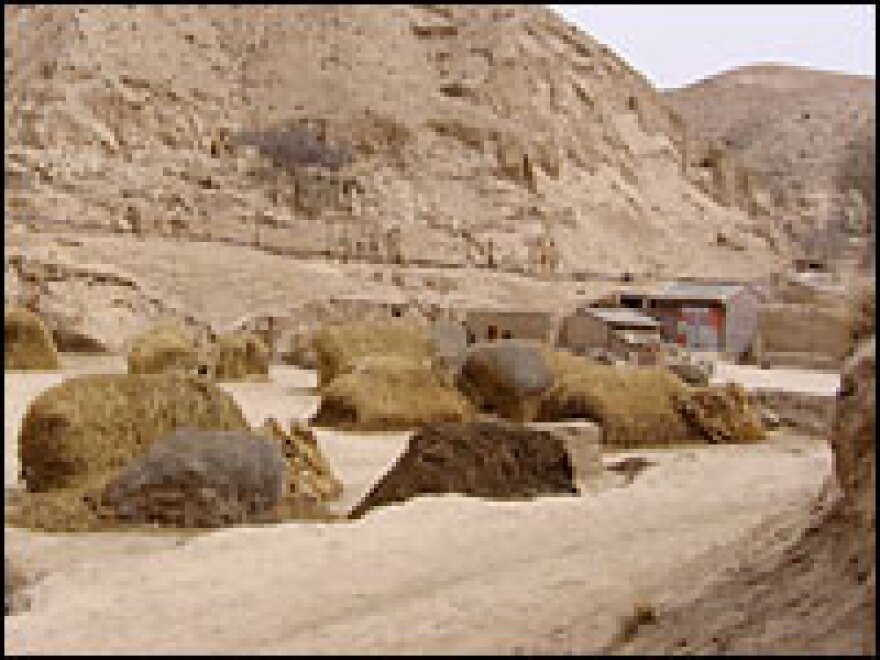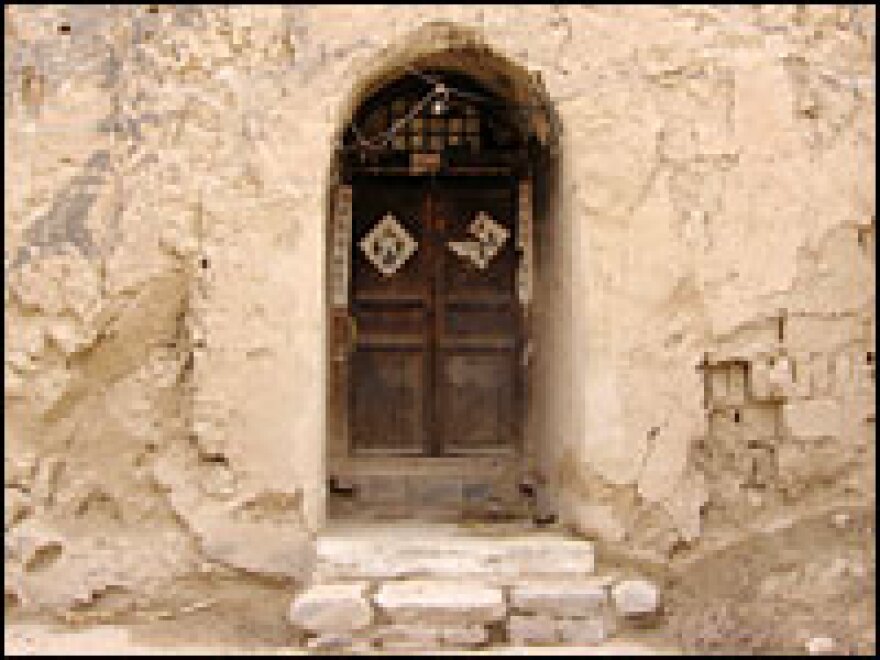





The village of Dalaochi is the only settlement along a stretch of road in mountainous northwest Gansu province. The village's mud-brick buildings seem to be a continuation of the khaki-colored earth on which they're built.
Farmer Wei Zijian squats at the entrance to the village, sipping from a jar of green tea. The reason he's not out planting wheat, corn and potatoes is simple.
"They won't grow," he says. "There hasn't been enough rain this year."
In fact, there hasn't been enough rain here for 10 years.
Life in poverty-stricken Dalaochi exemplifies how far some rural areas lag behind China's cities. It also illustrates the tremendous challenges the Chinese government faces in improving life for Chinese farmers.
Dalaochi is located on Northwest China's arid loess plateau, an area about the size of France. Loess soil is basically compacted dust. Stripped of trees and grass, the soil is easily blown or washed away by wind or water.
To eke out a living in these barren badlands of soaring cliffs and plunging ravines would appear to be an amazing feat of survival. But people have farmed the land here for at least 2,000 years, terracing the hills into a landscape of giant steps.
On the rare occasions when it does rain, locals catch water in concrete cisterns built outside each home.
At the village temple, residents of Dalaochi pray to the Dragon King, who in Chinese folk religion is said to bring clouds and rain. Still, agriculture doesn't yield enough to live on, and Wei and other locals subsist on government handouts.
Traditionally, the majority of loess plateau inhabitants lived in caves dug into the hillsides.
Wei, for example, used to reside in the cave dwelling where he was born 50 years ago. Inside, a traditional kang, or heated sleeping platform, dominates the main room. Newspapers covering the wall fall away in places to reveal the earth underneath. Two more rooms extend deeper into the hillside.
The good news for Wei is that he's moved out of his cave and into a new, one-room house just steps away. He bought it for about $350.
Another source of pride for Wei is his two teenage children's academic achievement; he beams as he displays their certificates for excellence in school. Wei himself never learned to read or write.
To pay for the children's school fees, Wei says his wife has been working as a migrant laborer for the past 10 years. She makes $70 to $80 a month weaving grain sacks, twice as much as what Wei earns from farming.
When asked what his greatest hope for his children is, his answer is immediate.
"College," he says confidently. "We'll take out a loan to cover their college tuition, just as we have for their high school education."
His family has lived in Dalaochi for generations, longer than anyone can remember. Dalaochi is one of the few villages left in the area. Most of the others have been relocated.
"As soon as my kids graduate from college and get jobs elsewhere, we old folks are going to leave here and go live with them," he says, without a trace of nostalgia in his voice. "It doesn't rain. There's just no way to live here."
Things have definitely improved in Dalaochi. In the past decade, the village has gotten electricity and most families now have televisions. Yet many older village residents have never seen a train or airplane. Most are so poor they can't afford to eat meat except at Chinese New Year.
China's government has recently outlined its vision of building a "new socialist countryside" that is clean, prosperous and democratic. Dalaochi shows just how far they have to go.
Copyright 2022 NPR. To see more, visit https://www.npr.org.




